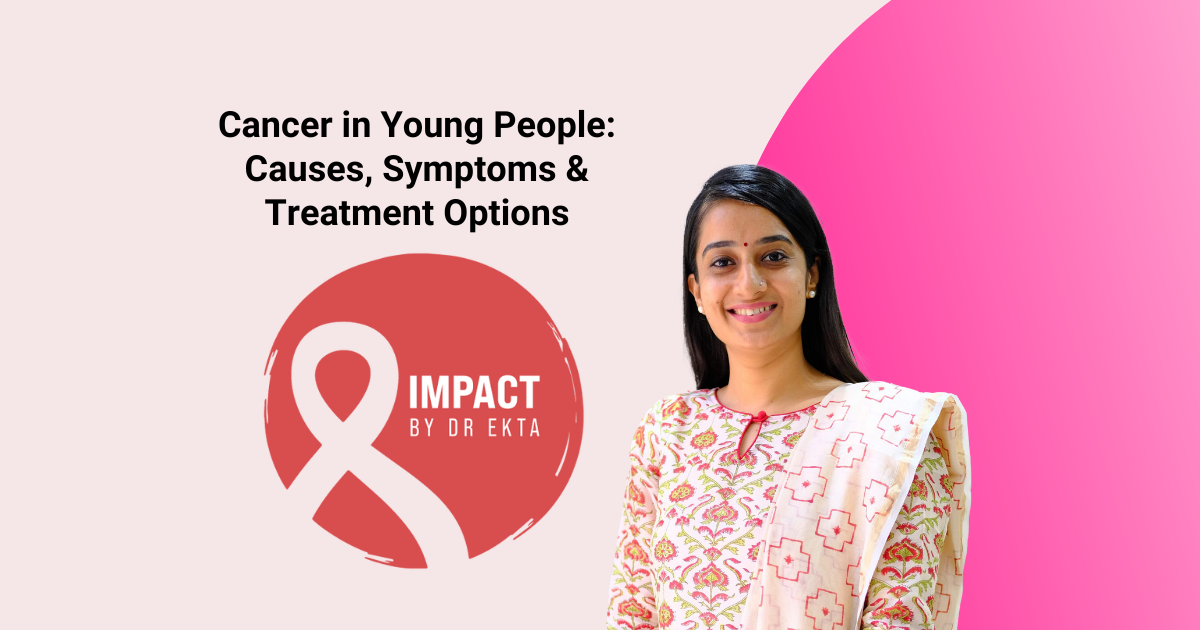Cancer is often thought of as a disease that affects older adults, but it can also impact young people, including children, adolescents, and young adults. While relatively rare, cancer in young people presents unique challenges in diagnosis, treatment, and emotional well-being. Understanding the risks, symptoms, and treatment options can empower families and individuals to take early and effective action.
Understanding Cancer in Young People
“Cancer in young people” refers to cancers diagnosed in individuals under the age of 40. This group includes childhood cancers, adolescent cancers (typically ages 15 to 19), and young adult cancers (ages 20 to 39).
Key facts about cancer in young people:
- Childhood cancers differ biologically from adult cancers
- Young people may have different symptoms and treatment responses
- Survival rates have improved significantly with early diagnosis and treatment
- Emotional and social impacts are more profound due to education, career, and relationship interruptions
Common Types of Cancer in Young People
Different age groups are more likely to develop specific types of cancer.
In children (0–14 years):
- Leukemia (especially acute lymphoblastic leukemia)
- Brain and spinal cord tumors
- Neuroblastoma
- Wilms tumor (kidney cancer)
- Lymphoma (Hodgkin and non-Hodgkin)
In adolescents and young adults (15–39 years):
- Hodgkin lymphoma
- Non-Hodgkin lymphoma
- Melanoma (skin cancer)
- Thyroid cancer
- Testicular cancer
- Cervical and ovarian cancer (in females)
- Sarcomas (bone and soft tissue)
Symptoms to Watch For
The symptoms of cancer in young people can be subtle and are often mistaken for common illnesses. However, recognizing them early can make a significant difference in outcomes.
Watch for signs such as:
- Persistent unexplained pain or swelling
- Unusual lumps or bumps
- Ongoing fatigue or weakness
- Frequent or unexplained fevers
- Easy bruising or bleeding
- Sudden weight loss
- Changes in vision or persistent headaches
- Seizures (especially in brain tumors)
Encourage prompt medical evaluation if symptoms last more than two weeks or worsen over time.
Risk Factors for Cancer in Young People
The exact causes of cancer in young people are not always known, but several risk factors may increase the likelihood of developing it.
Potential risk factors include:
- Genetic mutations (e.g., BRCA1, BRCA2, TP53)
- Family history of cancer
- Radiation exposure (including previous cancer treatment)
- Weakened immune system
- Environmental exposures (e.g., chemicals, pesticides)
- Viral infections (HPV, EBV, HIV)
For those with a strong family history, genetic counseling and regular checkups are recommended.
Diagnosing Cancer in Young People
Timely diagnosis is key to effective treatment. If a doctor suspects cancer, they may order:
- Blood tests to assess overall health and detect cancer markers
- Imaging scans like MRI, CT, X-rays, or ultrasound to locate tumors
- Biopsy to confirm the presence of cancer cells
- Bone marrow tests (for leukemia or lymphoma)
- Genetic testing to identify inherited mutations
Learn more about how cervical cancer is diagnosed for a related diagnostic process.
Treatment Options for Young People
Treatment plans depend on the cancer type, stage, and patient’s overall health. The goal is to cure the disease while minimizing long-term side effects.
Common treatments include:
- Surgery to remove tumors
- Chemotherapy to kill cancer cells
- Radiation therapy to target cancer-affected areas
- Immunotherapy to boost the body’s immune response
- Targeted therapy aimed at specific cancer mutations
Multidisciplinary teams, including pediatric oncologists, surgeons, and counselors, provide comprehensive care.
Side Effects and Long-Term Impact
Young people may face both short-term and long-term side effects from cancer treatment.
Short-term side effects include:
- Nausea, vomiting, and hair loss
- Fatigue and low blood counts
- Pain and infections
Long-term concerns may include:
- Infertility due to chemotherapy or radiation
- Growth or developmental delays in children
- Secondary cancers later in life
- Emotional and psychological effects
Regular follow-ups and survivorship programs are essential to monitor and manage these risks.
Coping with the Emotional Impact
The emotional toll of cancer in young people can be immense. Fear, anxiety, isolation, and depression are common.
Coping strategies include:
- Psychosocial support from counselors or therapists
- Peer support groups and cancer communities
- Open communication with family and care teams
- Creative outlets like writing, music, or art therapy
Cancer and Emotions: Impact on Mental Health explores this in more detail.
Survivorship and Life After Cancer
With advances in early detection and treatment, many young cancer patients survive and thrive. However, transitioning back to school, work, and normal life can be challenging.
Key survivorship tips:
- Schedule regular check-ups with your oncologist
- Monitor for any recurrence or late effects
- Maintain a healthy lifestyle (diet, exercise, sleep)
- Access fertility and reproductive health support
- Build a long-term care plan with your medical team
Explore early cancer detection test benefits to learn how prevention plays a role.
Government Resources and Support
Trusted organizations offer resources tailored for young people with cancer:
- National Cancer Institute (NCI)
- Centers for Disease Control and Prevention (CDC)
- Cancer.Net – Young Adults with Cancer
- American Cancer Society
These platforms provide guidance on treatment, emotional support, financial aid, and survivorship.
Final Thoughts: Empowering Young People in the Fight Against Cancer
Cancer in young people is a reality that demands awareness, education, and action. With early diagnosis, advanced treatment, and holistic care, survival rates continue to improve. If you or someone you know is facing cancer, reach out to a specialized oncologist and build a care team that understands the unique needs of young individuals.
For more guidance or to schedule a consultation, contact our expert team. Together, we can face cancer with strength, knowledge, and hope.
Need guidance & support for cancer? Contact our care team or call us at 08866843843

